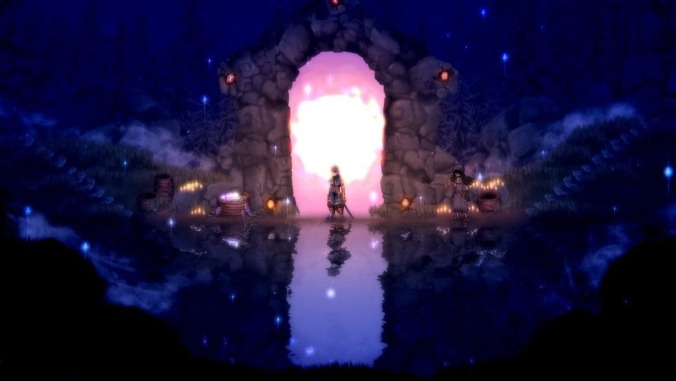Salt And Sacrifice manages to overcome a lousy first impression
Ska Studios' Salt And Sanctuary sequel is a bit ugly and off-putting on first glance, but there's an interesting world lurking underneath

Every Friday, A.V. Club staffers kick off our weekly open thread for the discussion of gaming plans and recent gaming glories, but of course, the real action is down in the comments, where we invite you to answer our eternal question: What Are You Playing This Weekend?
I did not like Salt And Sacrifice the first time I played it. Like, at all.
This was seven months ago, when the game’s PR folks first made available the alpha build of the game—a sequel to Salt And Sanctuary, one of the first titles to attempt to do the “Dark Souls but it’s a 2D side-scroller” conceit. Sanctuary has fallen out of the critical conversation in recent years, with titles like Hollow Knight and Blasphemous beating it on vibe, and Death’s Gambit and its ilk refining its spin on 2D Souls combat. But I still had enough lingering affection for Ska Studio’s original game (and their earlier efforts, which helped establish the “Flash Games made good” vibe of the old Xbox Live Arcade) that I wanted to see what the sequel was like…and came away from that first encounter deeply disappointed.
It’s churlish, even in this age of endless Early Access, to ding a game for the failures of a build that is, by its own titling, incomplete. But if managing impressions is important, then that goes doubly for first impressions, and the first impressions given off by Salt And Sacrifice were that its creators had hopped in a cryogenic freezing pod 20 minutes after the first game went gold, and had only re-emerged a few months earlier to make the sequel. The game’s world felt empty and under-explained; its animations stiff and rote; its combat unsatisfying. Nowhere was there an acknowledgement that this weird little sub-genre of a sub-genre had advanced in the intervening period; if anything, the new game felt like a step backward from a prequel that had been modestly pioneering, albeit for a definition of “pioneering” that meant “jamming two extremely popular things together and making it mostly work.”
